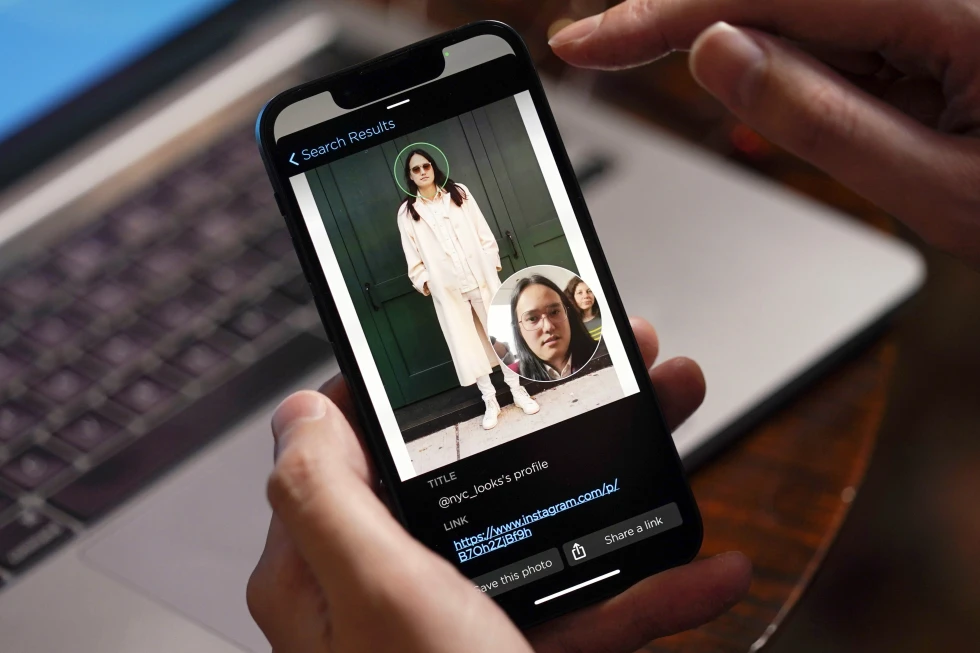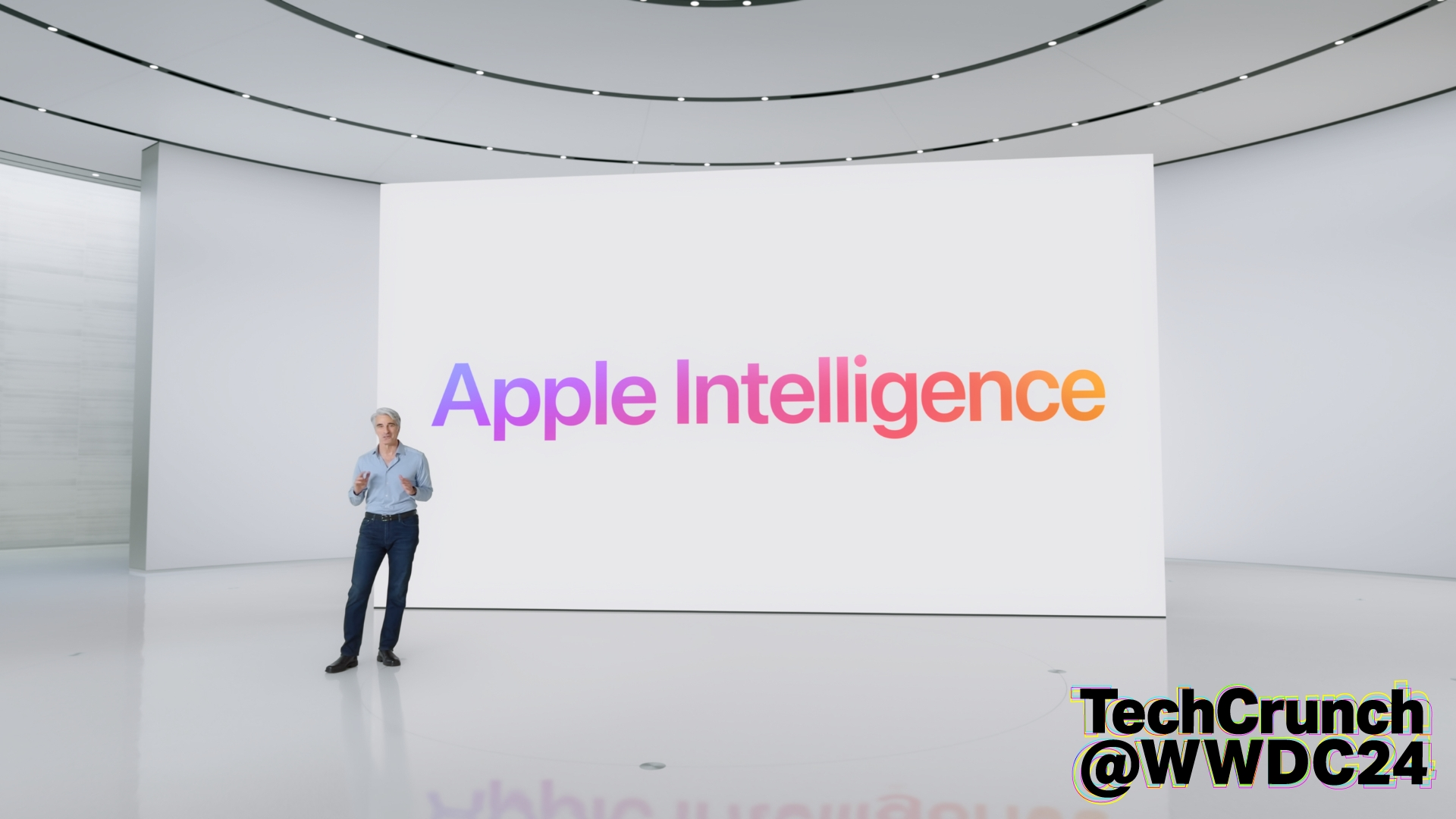|
|
 |
If states all pass the same thing, you risk us fossilizing solutions that don’t solve the problems we need to solve.
— R.J. Cross, PIRG Campaign Director, on the divergent Rhode Island privacy bill.
|
|
|
Welcome to Snippets 👋 Clearview AI, the controversial facial recognition startup and subject of journalist Kashmir Hill's recent exposé 'Your Face Belongs to Us', came to an unusual settlement agreement in a consolidated lawsuit against the company.
Plus, Rhode Island's new privacy bill was criticized for diverging from precedent, younger generations are more open to having their location tracked, Apple's iOS 18 promises a host of privacy-enhancing features, and more.
|
|
|
|
|
Clearview AI reaches unique settlement in privacy suit
|
 |
|
AP Photo/Seth Wenig, File
|
Plaintiffs in a case against facial recognition startup Clearview AI are set to receive a share of the company’s potential value, as opposed to a traditional payout, after the two parties reached a settlement last Friday.
|
- Clearview AI was accused of constructing a database of the plaintiff’s faces, using photographs from social media and elsewhere, before selling access to that database to private and public entities.
- The settlement, estimated to have a value of over $50 million, is meant to workaround Clearview AI’s current financial status, which makes it unable to compensate plaintiffs in cash.
- The deal doesn't sit well with everyone though, with one attorney remarking, “It does not address the root of the problem. Clearview gets to continue its practice of harvesting and selling people’s faces without their consent.”
|
|
|
|
|
|
|
Announcing Transcend's Auditor for Partners Program!
|
To keep our partners ahead of legacy privacy work, we’re excited to launch a new custom offering as the latest addition to our Next-Generation Partner Program: Auditor for Partners.
Auditor for Partners is an industry-leading program that gives Transcend Partners a powerful way to help clients understand their web consent footprint and decrease CPRA risk by proactively identifying potential web tracking violations.
|
|
|
|
|
|
|
|
Rhode Island’s privacy bill criticized for patchwork misalignment
|
 |
|
|
As Rhode Island’s privacy bill moves forward, critics feel it diverges too far from the patterns established by other US state privacy laws—omitting common provisions like universal opt-out, children’s privacy protections, and the right to cure.
|
- Critics also decried the law's definitional ambiguity—with one advertising coalition writing a joint letter calling for more clarity on what data falls under the law’s scope.
- Rep. Evan Shanley defended the bill, citing the need to "keep up with changing trends and policies in the online world.”
- Despite criticisms, the effects of variance in state laws remains unknown, with some experts welcoming the idea of testing and iterating on different approaches.
|
|
|
|
|
|
|
|
Meet the generation of users who want to be tracked
|
 |
|
|
As privacy advocates fight to limit the amount of data corporations collect and share, a generation of people is emerging that doesn’t mind having their location tracked—often signing up for it willingly.
|
- The rise of location tracking apps has created two sets of people: older generations who are either unaware or uninterested and younger users who actively volunteer and share their location.
- Younger users aren’t oblivious to the importance of online privacy, but they also tend to take a balanced, practical approach—weighing the inconvenience of disabling tracking features with the multitudes of other ways businesses collect data.
- While the argument for sharing location data with trusted contacts as a safety measure has some merit, it’s a practice some feel could be co-opted for mass surveillance.
|
|
|
|
|
|
|
|
- Lawyers' Committee opposes the new APRA draft.
- Brain data is rapidly entering the mainstream privacy discourse.
- Wells Fargo fires staff for using ‘mouse jigglers’.
- Sonos issues clarification on privacy policy change after backlash.
- What does the HIPAA Final Rule mean for businesses?
|
|
|
|
|
|
Beyond AI, iOS 18 promises enhanced privacy
|
 |
|
Karolina Kaboompics/Pexels
|
Though the integration of Apple Intelligence into iOS 18 has dominated headlines, the new generation of the iPhone operating system also offers several new privacy features.
|
- iOS 18 users will be able to grant apps access only to select contacts, shifting from the current all-or-none approach and helping them to better protect sensitive data.
- Users will also be able to hide the apps in a secure folder stored away from the home screen, or lock apps behind a Face ID, regardless of whether the app’s developer offers the feature.
- The new system will also introduce a dedicated Passwords app, which will allow users to store and share passwords and receive alerts in the event of a breach.
|
|
|
|
|
|
|
|
Meta on Apple’s radar as next AI partner
|
 |
|
Image Credits: Apple
|
After announcing ChatGPT’s integration into Siri, Apple is now exploring a potential partnership with Meta as it continues to tread deeper into AI waters.
|
- Apple has moved conservatively with AI so far, introducing AI-driven features to its existing products rather than attempting radical innovation.
- According to reports, Apple has two goals for the Meta deal: cut dependence on a single partner and offer distribution for their partners’ products over financial reward.
- Despite advancing another partnership, Apple faces setbacks in the EU—temporarily pausing the rollout of Apple Intelligence due to conflicts with requirements under the Digital Markets Act.
|
|
|
|
|
|
|
💼 7 trends shaping the privacy job market in 2024
|
|
The last few years have seen a significant shift in the privacy job market—reflecting broader macroeconomic trends, shifting organizational needs, and an industry-wide focus on data governance, as AI continues to take center stage.
Explore the seven top trends currently influencing the privacy job market, and what privacy leaders can do to stay ahead in the face of rapid industry change.
|
|
|
|
|
|
|
|
|
Snippets is delivered to your inbox every Thursday morning by Transcend. We're the platform that helps companies put privacy on autopilot by making it easy to encode privacy across an entire tech stack. Learn more.
|
|
|
|
You received this email because you subscribed to Snippets. Did someone forward this email to you? Head over to Transcend to get your very own free subscription! Curated in San Francisco by Transcend.
|
|